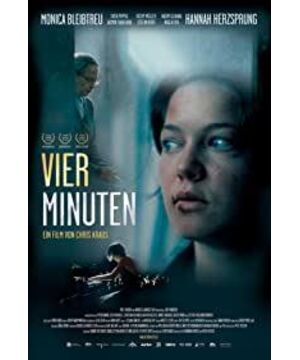So, take the second place and feel them, not the emotions they express, but the emotions I experience. Don't try to identify them, just let them project on yourself like a shadow.
In the final analysis, music is nothing more than sound. Wonderful sound.
The voice in Vier Minuten is a collision between presumptuous freedom and the cage of memory.
In reality, we don’t have a soundtrack, and there is no such kind of fireworks created by collisions; in reality, our soundtracks are just meaningless noisy fragments of language, most of which are just our self-directed and self-acted, or nothing more. It's someone else's whitewashing or shouting.
I remember that the first time I was double-infected by music and pictures was when I was watching "Everything About Lily Zhou". It was a hard breath, in the air of youth that was struggling to walk.
Now, there are two kinds of breaths in the air of Vier Minuten at the same time, the voices of two women who have lost love, about betraying love and being betrayed by love, one is 60 years of persistent breathing, and the other is 4 minutes of freedom. breathe.
After all, Traude Krüger's 60 years was a battle between trapped beasts. Whether such persistence is worthy of admiration or sadness is unclear at the moment and then.
The last 4 minutes was Jenny von Loeben's own symphony time, and then 4 minutes of freedom curtsy to 60 years of dedication.
View more about Four Minutes reviews











